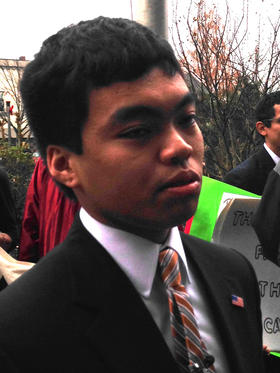Obama’s Immigration Policy Reaches Beyond Latino Communities
President Obama’s latest executive action on immigration will provide temporary deportation relief and work permits to millions of undocumented immigrants. The policy will certainly affect Latino communities. But it will also impact Asian immigrants.
Raymond Partolan’s family came to the U.S. legally from the Philippines when he was a baby. They settled in Macon. But his father hit a roadblock when he tried to become a legal resident.
“Because of my dad’s profession at the time, he was a physical therapist, he had to take the test of English as a Foreign Language,” he says.
After several tries, he still couldn’t pass the speaking portion of the test. So, the family overstayed their visas, making them illegal residents. Under the president’s new plan, Partolan’s parents qualify for relief because two of their children were born here. He says they’re cautiously excited.
“This is a three-year program,” He says. “It’s not certain whether the program will continue or not. There’s a lot left up in the air for questions.”
Partolan qualified for relief under Mr. Obama’s 2012 immigration plan.
Keish Kim did too. But she thinks the new policy doesn’t go far enough:
“The people who are the most vulnerable have been left out,” she says.
She thinks the plan should include people like her parents who didn’t have any children born in the U.S. Kim’s family came here legally from South Korea when she was 8 years old.
“When my parents were trying to change their visa, we had issues with our lawyers, some documentation went wrong, and we lost status afterwards,” she says.
Partolan and Kim’s situations aren’t that unique. A lot of Asian immigrants come to the U.S. on family visas. But some end up overstaying those visas. Federal officials say about 40 percent of illegal immigrants enter the country that way.
9(MDAxODM0MDY4MDEyMTY4NDA3MzI3YjkzMw004))








